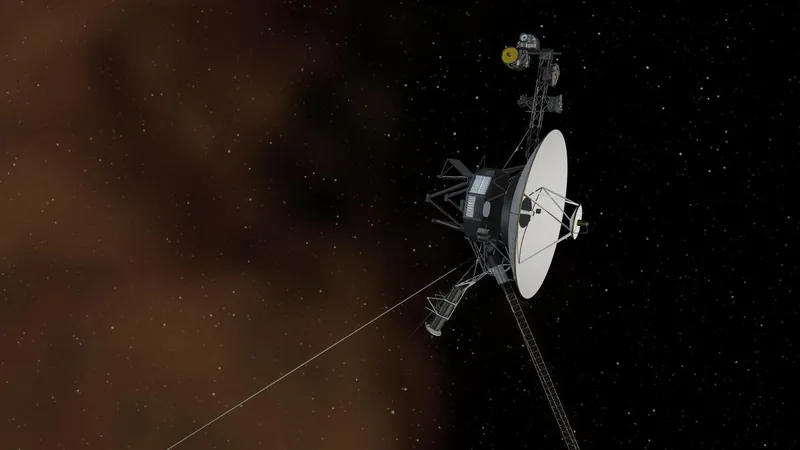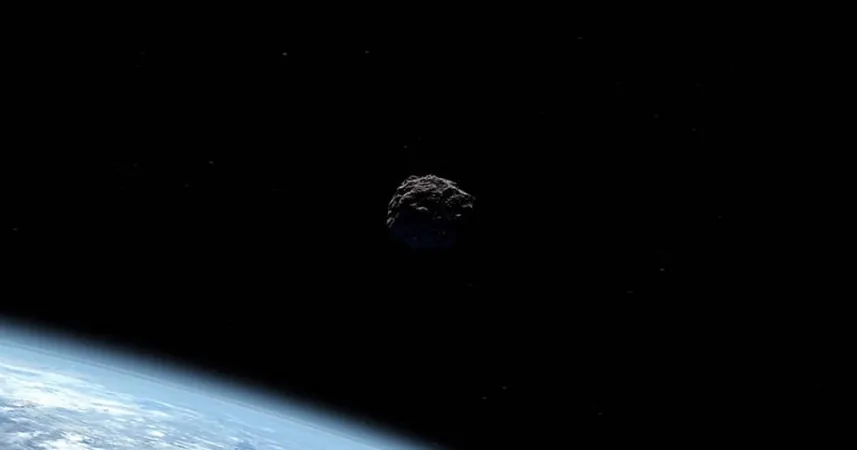
Voyager 1 Regains Its Voice: NASA Celebrates a Remarkable Comeback!
2024-11-29
Author: Charlotte
NASA's Triumph with Voyager 1
NASA has announced a triumphant victory for its iconic space mission, Voyager 1, revealing that communications have been restored following a troubling incident that silenced the spacecraft in October. At a staggering 47 years old, Voyager 1 is currently over 15.4 billion miles (24.9 billion kilometers) away from Earth, a distance that increases every second. As the spacecraft continues to travel through the cosmos, it is doing so on dwindling power from its plutonium supply.
The Communication Breakdown
Surprisingly, despite operating in colder conditions than originally designed for, Voyager 1 still has four functional instruments. However, the situation took a turn for the worse when engineers attempted to activate a heater to protect the instruments. The spacecraft's fault protection system, designed to manage its dwindling energy reserves, concluded that there wasn’t enough power to maintain operations, which resulted in the shutdown of the primary X-band transmitter. Consequently, communications were effectively lost as the lower-powered S-band transmitter failed to reach NASA's Deep Space Network.
Swift Resolution by Engineers
Thankfully, devoted NASA engineers swiftly addressed the issue, and on November 18th, X-band communication was successfully restored. Voyager 1 is now transmitting valuable data once more from its operational instruments, which include the Low-Energy Charged Particle Experiment, the Cosmic-Ray Telescope, the Triaxial Fluxgate Magnetometer, and the Plasma Waves Experiment.
Aging Spacecraft and Communication Challenges
This is not Voyager 1's first brush with communication failures; in fact, this remarkable spacecraft has been showing signs of age. In recent years, issues such as garbled data transmission have warranted concern, leading to multiple resolution efforts from mission teams. Alarmingly, its twin, Voyager 2, also faced communication obstacles in 2023, highlighting the increased vulnerability of these aging pioneers as they sail through the cold darkness of interstellar space.
Longevity and Ongoing Exploration
Both spacecraft are now considered senior citizens of the solar system, navigating an environment where every minor setback prompts worry. Yet, remarkably, they continue to exceed expectations, with their longevity sparking joy among scientists and space enthusiasts alike. As of now, Voyager 1 and 2 maintain operational status while conducting groundbreaking explorations of the outer solar system. Voyager 2 did, however, recently shut down its Plasma Science instrument due to energy constraints—the first such shutdown in over 16 years.
Power Limitations but Hope for the Future
Despite losing around 4 watts of power each year from their on-board radioisotope thermoelectric generators, there is a glimmer of hope that these space explorers may reach their 50th anniversaries in 2027. Achieving this milestone would be nothing short of spectacular given the challenges they face.
Transformative Journey Through the Universe
Since launching in 1977, both Voyagers have transformed our understanding of the universe. They have provided invaluable insights into the gas giants, completing flybys of Jupiter and Saturn, studying their moons, and revealing unprecedented details about celestial phenomena, such as the volcanic activity on Io. They have also been the first and only spacecraft to visit Uranus and Neptune and have sailed beyond the Kuiper Belt, entering the uncharted waters of interstellar space.
A Legacy to Inspire Future Generations
As they continue their solitary journeys through the galaxy, Voyager 1 and 2 will persist long after they’ve lost communication with Earth. While their days of real-time data transmission may eventually come to an end, their legacy will live on, continuing to inspire future generations of space exploration and igniting curiosity about the vastness of our universe. The story of the Voyagers is far from over—it is only just beginning!









 Brasil (PT)
Brasil (PT)
 Canada (EN)
Canada (EN)
 Chile (ES)
Chile (ES)
 España (ES)
España (ES)
 France (FR)
France (FR)
 Hong Kong (EN)
Hong Kong (EN)
 Italia (IT)
Italia (IT)
 日本 (JA)
日本 (JA)
 Magyarország (HU)
Magyarország (HU)
 Norge (NO)
Norge (NO)
 Polska (PL)
Polska (PL)
 Schweiz (DE)
Schweiz (DE)
 Singapore (EN)
Singapore (EN)
 Sverige (SV)
Sverige (SV)
 Suomi (FI)
Suomi (FI)
 Türkiye (TR)
Türkiye (TR)